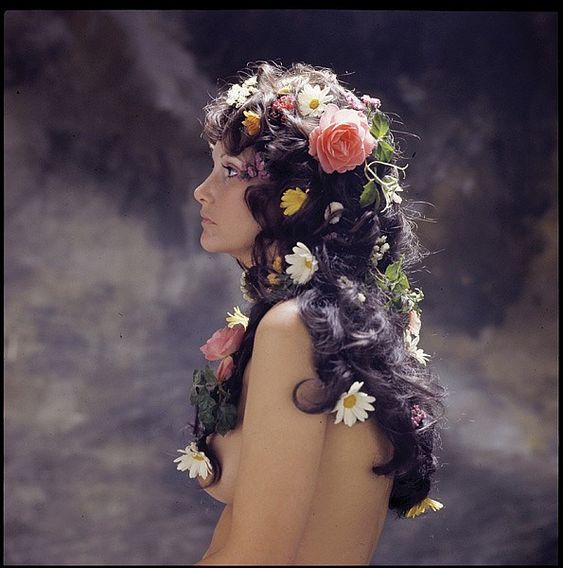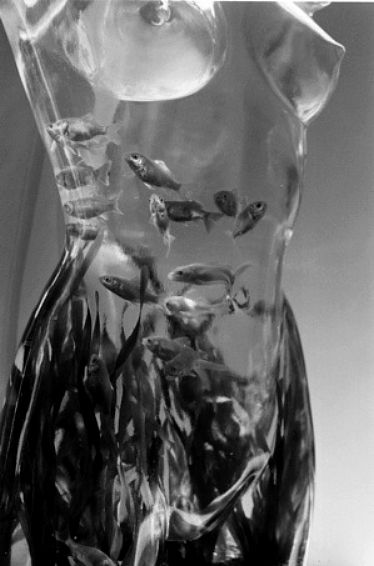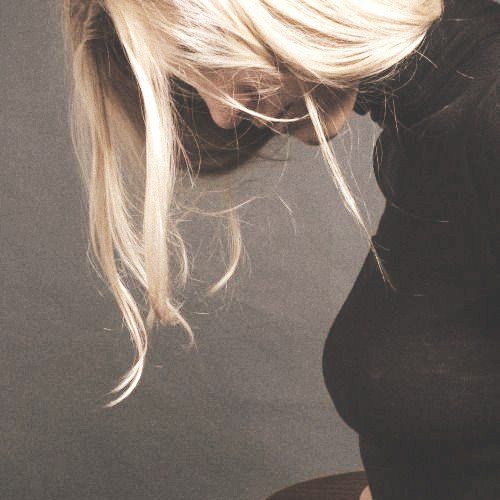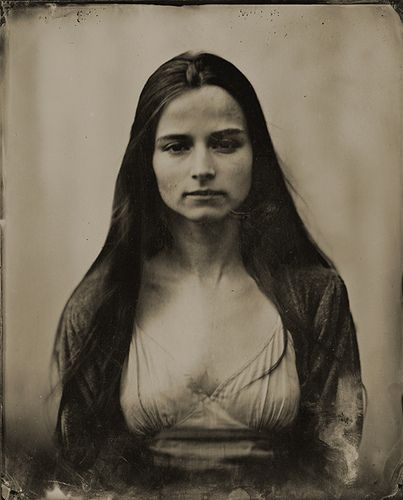 If we entertain the idea that the unconscious mind is a great, rolling ocean — vast, deep, and full of forgotten desires, suppressed fears, and unhealed wounds — then what we call a “ghost” might simply be the flotsam bobbing up to the surface. It’s the psyche’s way of saying, “You left something important down here!” Carl Jung called this the manifestation of the Shadow — the disowned parts of ourselves. Imagine a haunting as an eruption from within — a great convulsion of the unconscious, an uprising of that which we have long buried. They are griefs we refused to mourn, shames we refused to confess, loves we dared not claim. The poltergeist throwing plates across the kitchen? Perhaps it’s the silent rage of a lifetime spent accommodating others. The ghostly footsteps down the hall at midnight? Maybe it’s the echo of a self you abandoned long ago, still pacing, still searching for a door you locked and forgot.
If we entertain the idea that the unconscious mind is a great, rolling ocean — vast, deep, and full of forgotten desires, suppressed fears, and unhealed wounds — then what we call a “ghost” might simply be the flotsam bobbing up to the surface. It’s the psyche’s way of saying, “You left something important down here!” Carl Jung called this the manifestation of the Shadow — the disowned parts of ourselves. Imagine a haunting as an eruption from within — a great convulsion of the unconscious, an uprising of that which we have long buried. They are griefs we refused to mourn, shames we refused to confess, loves we dared not claim. The poltergeist throwing plates across the kitchen? Perhaps it’s the silent rage of a lifetime spent accommodating others. The ghostly footsteps down the hall at midnight? Maybe it’s the echo of a self you abandoned long ago, still pacing, still searching for a door you locked and forgot.
In this view, the mind — your mind, my mind, everyone’s mind — becomes a haunted mansion in its own right. Each locked room, each cobwebbed corridor, each draft of cold air is a memory or feeling we chose to exile. Yet exile is not the same as erasure. What we cast into the dark corners of ourselves does not die; it festers, it transforms, it takes on a life of its own. And eventually, it demands to be seen. The unconscious is a relentless dramatist. It refuses to let the story end neatly when the curtain falls. Instead, it resurrects the characters we tried to write out of our own stories, dressing them in the garb of spirits, coincidences, strange premonitions. It uses the language of the supernatural — flickering lights, cold spots, ghostly visitations — because these symbols bypass our rational minds. They hit us where we are still vulnerable, still childlike, still open to awe and terror. The supernatural, then, is less an invasion of the external world and more a revolt of the internal one, a revolution of the rejected self.
Synchronicities are those unnerving moments when reality seems to align in strange, meaningful ways. They are reality’s way of showing us that the division between inner and outer worlds is much thinner than we pretend. It’s as if our inner psyche is so densely packed with emotion and longing, it begins to seep outward, staining the fabric of the world until it too shimmers with personal significance. Astrology tells us that we are not discrete, isolated beings, but fields of energy in constant dialogue with the universe. The water signs — Cancer, Scorpio, Pisces — and their corresponding houses — the 4th, 8th, and 12th — are the secret passageways, the hidden rivers beneath the visible terrain of life. They govern emotion, intuition, memory, the unseen bonds between us and all that has been. Stephen Arroyo, wise interpreter of these mysteries, says that these water realms are soaked in the past, steeped in layers of psychic residue. And what is a haunting, if not a sense that the past has not left the building?
In this astrological light, hauntings are the reverberations of emotional events so charged, so saturated with feeling, that they impress themselves upon the very fabric of a place. These traces — what occultists sometimes call “psychic imprints” — are the energetic footprints left by intense sorrow, trauma, longing, or even bliss. They are the heavy scent of old perfume clinging to an empty coat, the echo of a sob long after the mouth that cried it has gone silent. Those most sensitive to these traces are often those whose natal charts are awash with water influences — those who, like Pisces, dissolve boundaries between self and other, who like Cancer, carry the memory in their bones, who like Scorpio, can see into the shadow realms and not blink. To them, the imprints of the past are felt in the gut, the heart, the hair rising at the nape of the neck.
Water does not reason; it remembers. It flows into every crack and hollow, carrying the essence of everything it has touched. So too do the water houses remember — they soak up the invisible residues of experience, collecting them in pools within the soul. When a person with strong water influences enters a space thick with such imprints, they may unwittingly tune into these psychic recordings, playing them back through the receiver of their own emotional body.
The Past Lives Inside Us
If we accept that every act, every intense emotion, leaves an energetic footprint — and why shouldn’t we, when even the faintest human scent can linger in a room, or the tremor of a voice can change the feel of an entire evening? — then it follows naturally that places themselves become memory holders. Often sorrowful fields where emotional residues soak into the very marrow of the space. It isn’t only the dramatic, gothic acts of trauma or violence that create these imprints. Joy, tenderness, ecstatic union — these too leave their marks. A child’s laughter down an old hallway, the aching silence of an unresolved goodbye, the adrenaline of a secret, the peace of a reconciled heart — all of these emotional feelings linger.
When we step into such spaces, we are stepping into an atmosphere laden with the collective emotional history of everyone who has ever wept, laughed, raged, loved, or mourned there. The walls don’t merely “see” — they absorb. They resonate. They remember. Those of us sensitive enough — whether by nature, trauma, or the astrologically gifts of watery intuition — might feel this collective atmosphere as vivid experience. A sudden sadness with no apparent cause. A feeling of being watched. A rush of inexplicable nostalgia. Sometimes even visions or auditory sounds that seem wholly foreign and yet intimately personal. In this light, a haunting is the emotional climate of the past still rippling through the ether, still affecting those attuned enough to perceive it. It’s less an invasion and more a resonance, a synchronization between the psyche of the individual and the psychic residue of the place.
“People with an emphasis on the water houses live within themselves and are extremely hard to get to know (especially if the Sun, the symbol of the individual self, is in one of these houses). So much of their life energy operates on a subliminal level; so much of their motivation is influenced by irrational, unexplainable, and often bewildering nuances. Their sensitivities are unpredictable, since one never knows what will activate an old memory, irritate a sore spot, or energize a troublesome complex…Planets falling in the water houses…often show the ghosts of the past which still haunt a person.” Stephen Arroyo
The 4th House
The 4th house in the natal chart is the underground wellspring. It is the original home — the birthplace of the emotional self. It is where the earliest impressions of safety, love, fear, and belonging are etched, often before memory even begins to spin its web. Astrologically speaking, it sits at the very base of the chart, the IC (Imum Coeli) — the “bottom of the sky” — which in itself feels like a beautiful riddle. For what is more hidden, more foundational, than the roots we do not see? If the Midheaven (the MC) is the public face we show to the world, the IC and the 4th house are the soul’s undercurrent, the unseen realm upon which the entire structure of the self precariously rests.
Here is where we find the remembered childhood and the felt one — the atmosphere of our early years, the unspoken emotional contracts written in the silent permissions or prohibitions of those who raised us. It is often a place less about the facts of upbringing and more about the emotional climate: Was love plentiful but inconsistent? The 4th house operates so much in the unconscious, many of its wounds do not announce themselves in obvious ways. They trickle upward through our adult lives, revealing themselves in the types of homes we create, the emotional climates we gravitate toward, the hidden emotional needs we fiercely protect. The very things we call “intuition” or “gut instinct” often have their roots tangled in the early soil of this house.
When we explore the 4th house, we are attempting to converse with the deeper waters of the soul — waters that have been stirred by the moon of memory, eroded by the rivers of feeling, and frozen or flooded by the climate of early life. Thus, understanding this house is an act of homecoming. It is returning, not necessarily to the place where we grew up, but to the inner landscape shaped by that place — and, if we are brave, beginning the work of choosing how we wish to continue building upon those foundations.
Within the 4th house are the hidden agreements we made as children, often without words: I must be perfect to be loved. I must hide my anger. I must care for others at the cost of myself. These agreements weren’t always cruelly imposed — sometimes they were survival strategies, the best tools a young soul could have with limited understanding. But they become part of the hidden scaffolding of adult life, influencing how we love, how we trust, how we fear loss or seek home in others.
The planets in this house are storytellers. Each carries a myth from the deep well of our beginning: a myth about security, vulnerability, loyalty, and loss. They speak in the language of the unconscious, where symbols matter more than facts. A Sun here might indicate that the family legacy is tangled with one’s very sense of self — a life lived in response to expectations. Mars here could suggest an early environment thick with conflict, passion, or unspoken anger. Neptune might point to blurred boundaries, lost identities, or an almost otherworldly emotional sensitivity within the family matrix.
Because so much of the 4th house is unconscious — a realm of shadows, of feelings so primal they elude the sharp light of intellect — we often act out its themes without knowing why. We build homes that mirror our childhood ones, for better or worse. We re-enact emotional patterns, seeking a resolution to stories that were left unfinished decades ago. We feel the gravitational pull of family legacies — the silent burdens, the unnamed griefs, the unacknowledged gifts — moving through us like unseen tides. Thus, the 4th house is the key to understanding the emotional DNA we inherited — the painful, resilient patterns that we are called either to continue, to heal, or to transform.
The 8th House
The 8th house in astrology stands like a black-lacquered doorway in the soul’s psyche, a place few are eager to enter without fear. If the 4th house is the secret garden of childhood feeling, the 8th house is the catacomb of adult initiation, where love, death, sex, loss, and power lie entwined like serpents in the dark. It is the house of what must be surrendered and what might, if we are brave enough, be transformed. In the realm of the 8th, the bright, curated self — the one we polish up for others — begins to peel away, revealing the rawer, unmediated forces we carry. These forces aren’t inherently evil or malevolent; they are simply the energies we have been taught to fear: desire, grief, rage, jealousy, the yearning for union so complete it borders on annihilation. The 8th house does not “create” these emotions — it houses them.
Because of this, the 8th house is inexorably linked to death — not just literal death, but the many little deaths we endure: endings, losses, ego deaths, betrayals, and the ecstatic, terrifying experience of surrendering control. It is where the unconscious asserts itself most violently when left unacknowledged — where our inner demons, if unexamined, may corrode us from within, leading to self-sabotage, paranoia, toxic entanglements, or power struggles. Planets housed here do not sit quietly; they churn and boil in the underground rivers of the psyche. A Venus in the 8th may crave love so obsessively that it becomes a compulsion; a Mars here may experience conflict and desire in volcanic, often hidden ways; a Moon in the 8th might carry a secret emotional intensity, experiencing life as a series of profound emotional deaths and rebirths.
But these intense forces are not curses. They are keys. They are the means by which the soul grows, deepens, matures. For how can we love fully if we have not first loved even the darkest parts of ourselves? How can we wield power wisely if we have not met the places where we feel powerless? When we venture into our own 8th house with compassion and courage, we are enacting one of the great mythic journeys — the descent into the underworld to retrieve something precious: authenticity. We come back carrying the medicine that only those who have suffered, surrendered, and survived can offer.
The 8th house, indeed, is where the private soul meets the other in a destabilizing merger. It is the house of surrender, of exposure, of risking dissolution in order to be reborn. In the erotic act, especially when infused with true emotional and psychological intimacy, there is a metaphorical death — le petit mort — the exquisite French phrase that captures the temporary obliteration of the ego, the collapse of the boundary between self and other. And isn’t this the most terrifying, exhilarating promise of the 8th house? We might, if we dare, be so nakedly known, so deeply merged, that something within us must die — in ecstasy. The small, defended self gives way to something larger, something that breathes with two hearts, or many.
But the 8th house’s call to shared experience also ripples outward into all forms of merging: financial, emotional, energetic. This is where inheritances are passed down — the psychic and emotional legacies of families, tribes, communities. It is where business partnerships are either built in trust and mutual empowerment, or corrupted by power games and hidden resentments. It is where emotional debts are incurred and repaid, where loyalties are tested, where alliances are cemented or shattered.
To share resources under the governance of the 8th house is spiritual. It is an act of profound vulnerability: I trust you enough to bind my fate, even partially, to yours. It is both a dangerous and an ennobling enterprise. For shared resources — whether they be emotional energy, trust, sexual connection, or financial assets — demand that we confront the deepest issues of control, trust, abandonment, and betrayal. If handled unconsciously, the 8th house can breed possessiveness, jealousy, manipulation — the fear of loss curdling into attempts to dominate. If faced with awareness and courage, however, it can catalyze immense growth. For what is more transformative than risking everything, merging deeply, and emerging on the other side expanded? It is about allowing ourselves to be changed by the encounter with the other, to emerge as beings who have tasted the sublime terror and beauty of connection, and who now carry the holy scar as a badge of life truly lived.
The 8th house is the hinge between light and shadow, a place where opposites entwine, struggle, and sometimes birth something utterly new. It reminds us that life itself is never static, never simply being but always becoming — an eternal battle between death and rebirth, isolation and union, fear and transcendence. To walk the 8th house path is to walk into the burning house of our own desires, attachments, and mortality, knowing full well that something must be surrendered to the fire.
The 12th House
The 12th house, from the Jungian lens, is the house of hidden sorrows or a vault for undone dreams. It is the vast ocean of the collective unconscious itself. If the 4th house is the cellar of our personal past and the 8th house is where personal and interpersonal realties are forged, then the 12th is where the walls between self and other, past and future, even life and death, dissolve completely. Here, the ego — our small, proud candle of consciousness — stands shivering before the endlessness of all-that-is. It faces its own forgotten memories, and the myths, fears, longings, and traumas of the entire human lineage. In the 12th house, we are no longer dealing merely with my grief, my fear, my longing; we are suddenly adrift in the grief, the fear, the longing — the boundless emotional currents that have shaped humanity since the beginning.
The psyche is subject to forces that move like tides — gentle one moment, obliterating the next. Dreams, visions, compulsions, moments of beauty, sudden collapses into despair — all of these can sweep through the 12th house landscape without warning, reminding us that no matter how tight our grip on rationality, we are not entirely in control. Something older, something vaster, breathes through us. Yet, it is precisely here, in this liminal, often disorienting space, that true healing becomes possible. For this is also the house of redemption through surrender. When we allow ourselves to face the family patterns, the hidden shames and distant hopes, we have the opportunity to end cycles that have been repeating, unconscious and relentless, for generations.
The planets inhabiting the 12th house become the secret emissaries of the unconscious, speaking to us through dreams, art, spiritual experiences, or sometimes through crises and losses that seem to tear the ground out from under us. A Sun in the 12th may suggest a life spent learning to shine from behind veils of introversion or collective duty; a Moon there may suggest deep emotional sensitivity that must find spiritual outlets or risk drowning in inherited griefs; Neptune here — would dissolve boundaries altogether, asking for a life lived in surrender to creativity, compassion, or mystical union. This house asks: Can you let go of who you think you are, to become who you are meant to be? Can you face the great waves of sorrow, hope, terror, and love without drowning, and instead learn to swim? It is here that personal healing becomes collective healing. When we confront and release what was hidden — when we meet the family ghosts with compassion — we break the chains not only for ourselves but for those who came before and those who will come after. In this way, the 12th house, for all its melancholy reputation, is ultimately a house of liberation. It is the place where the soul returns to its original vastness.
The Waking Dream
In the Jungian worldview, the external world is a mirror — a vast, sometimes bewildering mirror — upon which the soul projects its hidden contents. Reality itself becomes a waking dream. The 12th house is the great ocean of psychic material that stretches beyond the narrow banks of personal biography. It is where your soul ceases to be a solitary, isolated entity and is revealed as part of a vast and ancient river — one that has carried countless hopes, fears, instincts, despairs, and illuminations across the ages.
If this psychic material — this mass of dreams, symbols, and archetypes — is not recognized, not given space to speak, it begins to seep into our waking life in strange, often disruptive ways. We start to encounter “fate” as a projection of our own inner, unresolved dramas. Relationships mirror back to us our deepest insecurities and unmet needs; circumstances arise that seem to be forgotten wounds; synchronicities flutter like moths around the light of our hidden longings. Thus, the 12th house warns: That which you refuse to see within yourself, you will be forced to meet outside yourself — again and again — until recognition blooms into understanding.
The world becomes the dream-space of the unconscious mind, conjuring again and again the very images, the very symbols we need to face in order to heal, to awaken, to remember. And dreams are the nighttime emissaries of the soul! In dreams, the conscious defenses drop away, and the great collective tide rises to speak. Symbols in dreams are the language of the unconscious, offering clues, maps, and sometimes outright instructions for navigating the waking dream of life. When we attend to our dreams with reverence — we begin to walk the 12th house path with conscious feet.
The elements of the 12th house — the instincts, desires, fears, spiritual aspirations — are not ours alone. They are the shared material of all humanity. When we suffer in the 12th house, we are suffering with the world; when we heal there, we heal for the world as well. The suffering and redemption found here are communal, archetypal, eternal. In this way, the 12th house reveals itself not as a realm of deepest belonging. It is where the illusion of separation crumbles. It is where we discover that we were never alone, and could never be alone, because the soul is woven into the soul of all.
The Borders Loosen
The 12th house is where the self loosens its borders and flows back into the great totality of existence. Here, the sharp edges of “me” and “not-me” blur. It is the house of the mystic and the martyr, the wounded healer and the lost soul — because it is here that the soul is summoned to surrender its old structures, its fragile, defended sense of identity, and face the enormity of the All. The traditional associations — hospitals, psychiatric wards, prisons — may seem bleak on the surface, yet they hold profound symbolic power. Each represents, in its own way, a confrontation with limitation, suffering, and the stripping away of autonomy. A hospital bed, a cell, a ward: these are places where the illusion of control collapses, where the soul is laid bare, vulnerable, seen without its armor.
Prisons, especially, speak to a poignant idea: that evil and immorality are distortions of the same human longing for love, meaning, and connection. In the 12th house view, the “criminal” and the “saint” are closer than we like to imagine. Both are wrestling with the great hungers of the soul; one may have turned them inward destructively, the other outward redemptively, but the source — the profound need to heal the fracture between self and existence — remains the same.
The 12th house, then, is a landscape of private grief and hidden undoing — but it is also the place where the soul can undergo its most radical restoration. Here, forgiveness is a necessity. We forgive not to exonerate wrongdoing but because clinging to blame and guilt binds us even tighter to the illusions of separation. Compassion arises because, in the 12th house, we see — we feel — that there is no pain that is not shared, no fall from grace that is not, at its root, the universal human struggle to return to wholeness.
Thus, the 12th house offers a terrifying and beautiful gift: to lose oneself in order to find oneself anew. It is the dark night of the soul — but also the first breath of dawn, when the sky begins to lighten. Confronting the ghostly aspects of the self — the shadow, the grief, the hidden rage, the ancient fears — may bring searing emotional pain. But it is only through this courageous descent that we reclaim our true vastness. We realize that we are not our wounds, not our failures, not our prisons. We are the light that survives even after all else has been stripped away. In this way, the 12th house cradles the seeds of beginnings. Spiritual growth here is about realizing that to love even the broken is to love the whole.












